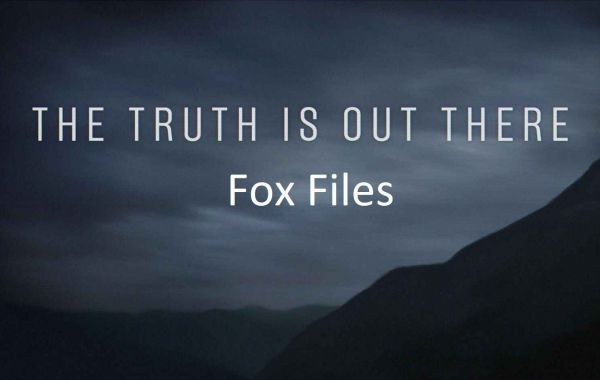Anyone awoke these days has noticed how mainstream-media outlets play up stories of firearms accidents all the time, while usually ignoring stories of citizens using guns properly to defend themselves.
This is hardly new; in fact, in an essay in 1882 titled "Advice to Youth," Mark Twain sarcastically mocked media misinformation about guns by writing: "A youth who can't hit a cathedral at thirty yards with a Gatling gun in three-quarters of an hour, can take up an old empty musket and bag his mother every time at a hundred. Think what Waterloo would have been if one of the armies had been boys armed with old rusty muskets supposed not to be loaded, and the other army had been composed of their female relations. The very thought of it makes me shudder."
As anyone who follows firearms issues today knows, not much has changed. A story about a gun accident will make the national news; a story about a widow defending her home from invaders is lucky to make the local paper. (The NRA'S decades-long "Armed Citizen" feature was designed to help counteract this bias.) The journalistic profession seems united in its dislike of guns (in civilian hands), and unrelenting in its efforts to play up the negatives and dismiss the positives.
What is it about guns that incites this sort of negativity? Or is this phenomenon less about guns than about what goes on in the hearts and heads of journalists?
I have talked with several former journalists about this. Former West Virginia newspaperman Don Surber said it was a matter of experience: "Rare is the journalist who owns a gun. Outdoors writers do. And a few photographers do. Other than that, it is very rare. You would think women reporters and copy editors who work late at night would carry, but no; They think mace will protect them. If you don't own a gun, you don't see why anyone else would. This reduces their interactions with gun owners because journalists are not hanging out at the range. Also with the disappearance of veterans from the field, you reduce the number of people who have actually fired a gun. After a while, people look down their noses at others who are not like them."
Peer pressure also plays a role: "For all the bravado about being independent, journalists are rather conformist. And the lefties are good at controlling the conversation. Timothy Crouse described the herd mentality of journalists in The Boys on the Bus, which covered the coverage of the 1972 presidential election. Nearly 50 years later that still holds true and I would venture to say it held true 50 years earlier. If you will recall, in 1972, all the boys on the bus thought McGovern would win." Instead, McGovern lost 49 states.
And another retired newsman, Jon C. Ham, formerly managing editor of the Durham Herald-Sun, responded: "It's always been a paradox to me how journalists can talk about 'keeping government in check' and 'being watchdogs and not lapdogs' but then support authoritarian action by government. I saw this with Ruby Ridge, Waco and Elian Gonzalez. All of my colleagues reflexively supported extreme government action."
And UCLA law professor Eugene Volokh, who writes a lot about both the First and Second Amendments, said, "They tend to travel in demographically anti-gun circles, and even if some of their colleagues are gun owners or pro-gun more broadly, those colleagues are reluctant to speak up because they feel they're in the minority."
I think there's a lot to these explanations, but I think there's something deeper going on. I think it has more to do with the minds and emotions of people who choose to make a living in the media industry. And I say this as someone who's both a lifetime gun person, and someone who has been around the lifestyle his entire life.
To understand this, it helps to think about what media people do for a living. And what they do for a living is traffic in images and unreality, often in the service of manipulation.
In his famous 1962 book on the media, The Image, Daniel Boorstin wrote about the rise of what he called "pseudo-events," events whose importance wasn't that they took place, but rather that they were reported on. He noted that the National Press Club featured racks stuffed with press releases about Washington events so that journalists could "report" on them without ever leaving the bar.
Boorstin noted that "the notice is given out in advance, 'for future release,' and is written as if the event had occurred in the past. The question 'is it real?' is less important than `is it newsworthy?"
Nowadays, of course, things are even less real than in Boorstin's time. "Video news releases" are sent to TV stations or networks in the form of pre-produced stories, with gaps left for the anchor to fill by pretending to be interacting with an on-the-scene "reporter." Press releases are not merely cribbed from, but reprinted verbatim—it's not plagiarism, it was explained when one such case became public, when you're encouraged to copy someone else's words. And sometimes they're even embellished: When a student in a journalism class at the University of Tennessee sent out a press release about a fictitious event (a student rally opposing "political correctness" that never happened) some outlets not only reported it uncritically but even added additional details that weren't in the release at all. And the media outlets, rather than being embarrassed, complained that the fake press release violated the bond of trust between journalists and public-relations people.
The result is a world based on manipulation of images and facts that are, at best, loosely related to reality. And that affects how people think.
My point isn't that you shouldn't trust journalists very far. My point is that you shouldn’t trust the bastards AT ALL. Not these days.
These complete imbeciles who work in that field get used to a world where words and images matter more than reality. It's a world full of things that often fall some-where between fantasies and manipulations and that seldom bear a perfect resemblance to the actual truth. (As Paul Newman tells Sally Field in the movie "Absence of Malice" (1981): "You don't write the truth, you write what people say.... Maybe it's just what you think, what you feel.")
Firearms and their use, on the other hand, are pretty darn real. You can't fire a shot now for "future use." You can't correct a mistake in a future edition. You can't do a write-through on a bullet.
What's more, you can't spin your way out of a mugging or a rape. Guns, simply by existing, are a reminder that there is another, more concrete world out there, one where reality is more fixed, and where actions have inescapable consequences, consequences that can't be talked out of existence. I suspect that most journalists are threatened by this world, and perhaps by the sense that they wouldn't do very well in such situations. Their hostility to guns is a way of dealing with insecurity and a form of denial fueled by performance anxiety: If you're afraid you're not up to protecting yourself or your family, you compensate by deriding the means of such protection. And, given that it's a defense mechanism and journalists are herd animals, any colleague who disagrees is a threat who must be shouted down. (Unsurprisingly, of all the journalists I've ever been acquainted with, the folks at Popular Mechanics—where they write about real things with concrete consequences all the time:--- were the most comfortable with firearms, or dare I even use the evil word guns).
If I'm right, then there's not a lot gun enthusiasts (oh my) can do to win over journalists in large numbers. You may change a mind or two, but most of them hold their opinions because doing so is less threatening to their self-esteem than agreeing with you. Those who wield a pen have a vested interest in believing that the pen is mightier than the sword. And apparently, they've been that way at least since Mark Twain's time.








